Interview: Rockin’ Hobart with A. Swayze & The Ghosts
Based in Hobart, A. Swayze & The Ghosts are due to release their debut album, Paid Salvation, tomorrow.
So, today check out this in-depth interview with band leader Andrew Swayze. As The 13th Floor’s Marty Duda found out, Swayze has plenty to say and he’s not afraid to say it. And musically… these guys rock in the best classic punk rock tradition.
Follow A. Swayze & The Ghosts: FACEBOOK INSTAGRAM SPOTIFY
Listen to the interview here:
Or read a transcription here:
M: Your first album as A. Swayze and The Ghosts, it’s coming out on Sept 18, it’s called Paid Salvation.
A: That’s correct, bang on.
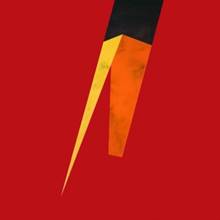 M: How are you feeling about it coming out in this weird time?
M: How are you feeling about it coming out in this weird time?
A: It must be done, it must come out, and if now’s the time, now’s the time. This is our debut record, so we don’t really have anything to compare it to. We were expecting to go on some big world tour or something like that, but for the moment we’ll be staying put and just hoping people will be listening to the record anyhow.
M: Right. So did you guys have some discussion about whether you were going to proceed, or was it a given?
A: We did. It was a very short discussion, it probably took 5 minutes! We really, really want to get this record out, and it hasn’t taken that long to finish it or anything. It’s a big milestone to release a debut, and we don’t want to stagnate, we don’t want to lose momentum, we want to just…go. It was never really an option of waiting any further.
M: Right. What would The Ramones have done in the same situation? They would have cranked out that first album as soon as possible.
A: Damn right they would have, exactly.
M: So are you in Hobart? Melbourne? Where?
A: I’m in Hobart, yeah. I live down here, we all live down here.
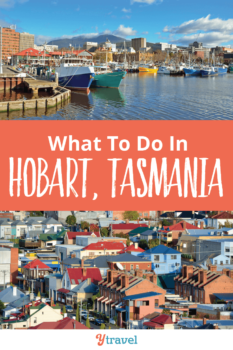 M: It’s fairly isolated down there as far as the rest of the country goes, isn’t it?
M: It’s fairly isolated down there as far as the rest of the country goes, isn’t it?
A: That’s right, yeah. It’s on a little island. It’s the capital city of Tasmania. It’s fairly isolated, up until the last 8-9 years it was pretty isolated socially as well, there wasn’t a lot going on down here. It’s like a big country town, really.
M: So are you guys locked down for Covid, or are you free to roam around?
A: You know what, we’re not actually in lockdown, it’s pretty well back to normal here. Given that it’s an island, they were able to stop the spread a bit by closing the borders.
M: We’re familiar with that concept here in Auckland.
A: Yeah, it’s been alright for us, we’ve been out and about doing regular things, really. Still can’t play shows though – we can play sit down shows, but we haven’t done that yet.
M: Gotcha. When was the last time you guys played out?
A: I actually couldn’t even tell you…it’ll be February or something like that. A long time ago.
M: I see from your press stuff that got sent to me that you feel strongly about using music as a platform to speak out about various things, is that correct?
A: That’s right.
M: Well, there’s two points of view to that. I’m on your side as far as that goes where if you have something to say, you should say it, but some people are like “just play your songs and shut your mouth!” Do you get any feedback like that?
A: (laughs) No, I don’t think we’ve ever had any feedback like that. At least, not that I’ve realised. If I was to get feedback like that, I’d tell them to fuck off, I reckon.
M: Good on you.
A: I think it’s really important to use your platform to speak up, to discuss and present ideas. Look, I love so many songs that are meaningless, as well, but when it comes to my own music I really like to have something to say. It was probably a couple of years ago that my wife said to me one day, oh, you’re starting to play in front of a lot of people, a lot of people listen to your music, you almost have a responsibility to talk with them about actual issues, you know? I think just hearing that really affirmed to me that I do have a bit of responsibility, especially if I’m going to call myself a punk. I really need to ask questions and challenge certain social norms that I don’t agree with.
M: Very good. Is there an overall world view that you’re trying to get across on this record?
A: Well, I’m fairly liberally minded, as you can probably tell. I would like to see the marginalised become less marginalised, the rich being taxed, and social change for the betterment of humanity, you know? I mean, everybody says they want that, but I think a good place to start with that is art and music. That’s how I intend on doing my little bit.
M: The album is called Paid Salvation, and there is a song on the album called Paid Salvation, which at one point in the middle of it you yell out “God is dead.” You’re going to get some pushback for that, don’t you think?
A: Probably, yeah. That’s ok, I don’t mind getting a bit of pushback. I’m not the only one, Nietzsche said that a long time ago, so if anyone’s got a problem they can bring it up with him.
M: Speaking of Nietzsche,, how about Connect to Consume? It seems like it’s a link to Blank Generation and Richard Hell, is that something you were thinking of when you were writing it?
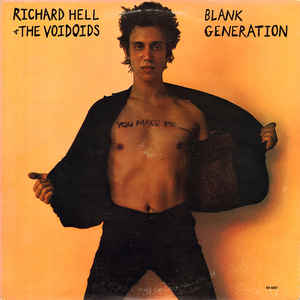 A: It wasn’t really, but I love Richard Hell. That song was purely based on my own thoughts about my generation and their obsession with social media and changing, living with alternate reality on the internet.
A: It wasn’t really, but I love Richard Hell. That song was purely based on my own thoughts about my generation and their obsession with social media and changing, living with alternate reality on the internet.
M: I think you refer to it as the anxious generation.
A: That’s right. It seems like everyone’s anxious, you know? Perhaps we’re more trigger happy with the diagnosis of anxiety. It seems like everyone I know has got depression or anxiety, and the pressures that we feel are to succeed and to look a certain way and have certain things just seem, at least to me, to be accelerating as the years go on. I attribute that as having a lot to do with social media, and just the media in general.
M: Well, I’m a few thousand years older than you and so I can remember back in the 60s and 70s, and it didn’t seem like those things were happening to everybody at that point. When you’re growing up back then you didn’t hear about all this stuff. But I’m sure a lot of it was just not spoken about.
A: Yeah, I’m sure that’s the case.
M: And you a little shout out to Roger Daltrey in the song, so that’s kind of nice.
A: Yeah (chuckles)
M: Are you a Who fan?
A: Mildly, I think The Who are ok. They’re good, but I probably couldn’t listen to an entire record of them.
M: Can I ask you how old you are?
A: I’m 29.
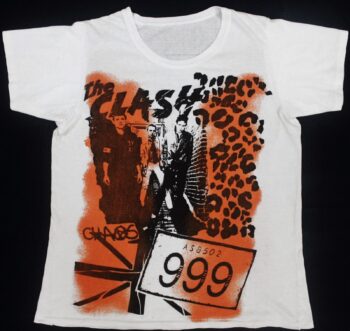 M: Very good. And the song after Connect to Consume, Marigold, reminded me of The Clash a little bit and a band called 999. Are you familiar with those at all?
M: Very good. And the song after Connect to Consume, Marigold, reminded me of The Clash a little bit and a band called 999. Are you familiar with those at all?
A: Well, I’m definitely familiar with the Clash, I love The Clash. I’ve not heard 999 though.
M: It’s kind of in the same ballpark, English Punk.
A: I’ll write that down in my little notepad here, and I’ll check them out.
M: Songwriting wise, is most of the stuff coming from you?
A: No, it’s not actually, it’s a shared effort. Our name is quite deceptive. Pretty much everybody that ever interviews me assumes that I’m the songwriter, which is flattering, it’s nice but it’s a lie. The other guys are just as productive; we’re all in it together and we all help with each other’s parts and whatnot.
M: So you’re all sharing the songwriting credits?
A: That’s exactly right.
M: I think that’s the key to a longstanding band, the ones where one person is making all the money out of the songwriting usually doesn’t end well.
A: Doesn’t seem to work too well, and that’s a lot of responsibility and a lot of pressure as well. I like to share the workload a bit. It’s a lot more fun, and personally I’ve done the thing where I write the music and try to get other people to play it, but you really end up with a far more diverse and varied piece having shared writing, I think. There’s things that I would never think of that the other guys in the band think of.
M: For folks that don’t know, the other guys in the band are Hendrik, who plays guitar. That’s a good name for a guitar player.
A: Isn’t it?
M: Zackary on drums and Ben on bass. What can you tell me about the other three guys in the band?
A: Well, Zack is very tall and hairy, Hendrick not so hairy, and Ben is medium hairy. Nah, they’re all lovely guys, they’re great fellas. We’re all best mates. We’re all very similar, I think, in our demeanors. We all love a joke, we’re constantly laughing and carrying on, even when we’re in these serious convos in meetings and things like that. We’re all in the same path and understanding of what it means to be a musician and what we want from it, which is really helpful. No one’s got a false idea grandeur or anything like that, which I think you find often in bands. If you meet them I’m sure you’d love them, they’re all very pleasant fellas.
M: I look forward to that. So what brought the four of you together? Was there a mutual musical thing that happened between you, or were you just growing up together, how did it happen?
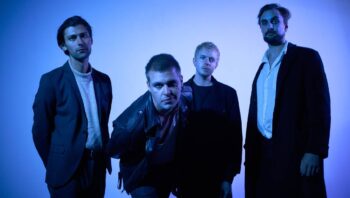 A: Yeah, we sort of grew up together playing in bands in the same circles, same sort of community. The community in Hobart is pretty small. It’s a small population, and everyone knows each other, and all the bands know one another and whatnot. I guess we met through those circles and then Zack, myself and Hendrik all moved in together, into a cold dirty old shitbox in West Hobart. There was another three people living there as well, so it was a pretty wild old place to live. We had all our instruments always set up and we’d always be making music together or by ourselves. I think one day I asked the fellas if they wanted to have a jam with some stuff that I’d written. We set up and away we went. It was really good fun and felt really natural, so we kept going. We recorded an EP the week after in Zack’s room.
A: Yeah, we sort of grew up together playing in bands in the same circles, same sort of community. The community in Hobart is pretty small. It’s a small population, and everyone knows each other, and all the bands know one another and whatnot. I guess we met through those circles and then Zack, myself and Hendrik all moved in together, into a cold dirty old shitbox in West Hobart. There was another three people living there as well, so it was a pretty wild old place to live. We had all our instruments always set up and we’d always be making music together or by ourselves. I think one day I asked the fellas if they wanted to have a jam with some stuff that I’d written. We set up and away we went. It was really good fun and felt really natural, so we kept going. We recorded an EP the week after in Zack’s room.
M: Oh man, that’s pretty quick!
A: Yeah, we were and still are very productive when it comes to songwriting. Maybe we’re just not perfectionists. We continued playing some live gigs around Hobart, our popularity was growing and we thought maybe it was appropriate to record a record. We hired a studio, we went in, set up, got really pissed and really high the entire time and recorded this terrible sounding record. It was shit. In hindsight, at the time we thought we were killing it, as you do. We listened back to it and it was rubbish. At that point we just threw the record out, we tossed it. I don’t think anyone’s ever heard it and they never will. Anyhow, during that recording process we’d asked Ben to come in and play some keys over one of the tracks, at the time we only knew him vaguely through another band. We got along with him really well, he’s a really pleasant guy and we thought oh, maybe we’ll just ask Ben to join the band on the bass. So he did, and he was far more screwed together than we were. I think he influenced us to clean ourselves up a bit and take it far more seriously, rather than just using being in a band as an excuse to get fucked up on the weekend and play and carry on. Things took off from there, I suppose. The moment we started taking things more seriously, more serious things happened, which is great, right?
M: Being based in Hobart…I’ve never been there, so I’m not sure what it’s like. Is it quite isolated from the rest of the country?
A: Yeah, it is. Physically it’s very isolated, it’s on this little island, there’s about 500,000 people in our state. Growing up here, it was a pretty slow-moving, quiet place. Culturally it was pretty slow as well, there wasn’t a lot going on, not that I was aware of, anyway. Anyway, this billionaire dude David Walsh, he was born in Hobart. He came back there after becoming a billionaire and decided to set this museum up called Mona. It’s a crazy museum, its world renowned, and since that happened everything just went crazy here. Prices of houses went up,the art scene blew up, all this stuff happened, so it’s a different place from when we were kids.
M: For better or for worse?
A: I think for better.
M: Oh, good.
A: I think it’s really put Hobart on the map and given artists the confidence to pursue their work in a more full time sort of manner. Before then, and still now, people really made art for art’s sake, which is still a fantastic thing. The community we came out of was very experimental, loud noisy punk that would never be a commercial thing, and that was the kind of music that we were playing as well. It was never an intention to make it commercially viable, it just happened for us, and here we are. We’re having all these great opportunities to tour and release music. But I’m really thankful that we didn’t start like that, because I think we’ve got an honesty to our music that other bands may lack and people from bigger communities and cliques maybe feel they don’t really have it.
M: So you recorded the album in Melbourne.
A: That’s right.
M: When you do go to Melbourne, or wherever else, are you considered outsiders a little bit because you’re originally from Hobart?
A: Yeah, I guess so. A lot of people assume we live in Melbourne, we probably spend more time there than we do here. We actually don’t play in Hobart very often. The music industry in Australia is based around Melbourne and Sydney, that’s where all the stuff happens. There’s certainly an intrigue with the fact that we’re from Tasmania, there aren’t many bands that have made it away from Tasmania so people are interested. It’s definitely not an outsider thing…it wouldn’t bother us if it was anyway. We don’t consider ourselves a Tasmanian band, we’re just a band, you know?
M: Cool, cool. Now getting back to the album, I just want to touch on a couple more tracks before we go. You have a track called Rich and another track called News, so you obviously have distinct opinions about both of those situations, do you want to elaborate a little bit?
A: Sure. The song titled Rich, it’s definitely tongue in cheek. That one comes out of feeling like the victim of tall poppy syndrome. We had a member of the community down here that was talking trash behind our backs for a little while, and this person we considered to be a very good friend of ours. As soon our band started to take off, it was like we were being ousted from our community. You know, that classic thing of thinking we were selling out or something by being mildly successful. So we wrote this song about it, which is Rich. It obviously trickles into other things as well about excess and doing things for superficial value.
News is once again going back to the media. It’s not news that I have a problem with, there are particular news outlets that I think mis-portray the truth and we know that. This is not an old concept; it was just something that I wanted to sing about. I think it’s important to be up to date to a degree, but when it becomes biased media it’s really doing more harm than good. It frustrates me that it seems like most of our community have these certain biases towards people based on the media that they consume. It comes up constantly, but I guess someone in every generation has to make a point of it at some point.
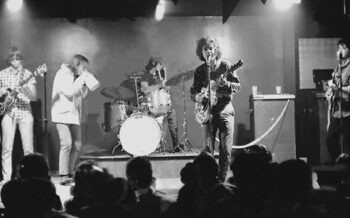 M: The final song on the album is called Evil Eyes, and caught my attention because it reminds me of 13th Floor Elevators and Rocky Erickson. I was wondering if that was something you relate to at all?
M: The final song on the album is called Evil Eyes, and caught my attention because it reminds me of 13th Floor Elevators and Rocky Erickson. I was wondering if that was something you relate to at all?
A: Well, I used to be quite a fan of 13th Floor…among other psych bands, I got into that a little while back, but definitely not something I’ve thought about for a long time, especially since that song. In fact, that song was mainly written by Hendrik, he’d came to the band with this two-chord jumbling thing and this lyric of evil eyes. I think he’d written it about being paranoid when you smoke pot in his version, and then I interpreted it as being more about mental illness. We worked on it from there, and it’s a really fun little track. It’s fun to play, its super simple, there are two chords in the entire song. It’s just a jangly little number. We thought it was appropriate to put on the record, there’s so many serious attitude-filled songs and aggressive and abrasive parts in the songs, we just thought we’d put a cute little fun one on the end.
M: Well, hopefully you guys will get back on stage and in front of an audience soon. Have you been to New Zealand before?
A: No, we definitely intend on visiting though. I’d love to go to New Zealand.
M: You’d go over well here, I’m sure.
A: Well, keep your eyes peeled!